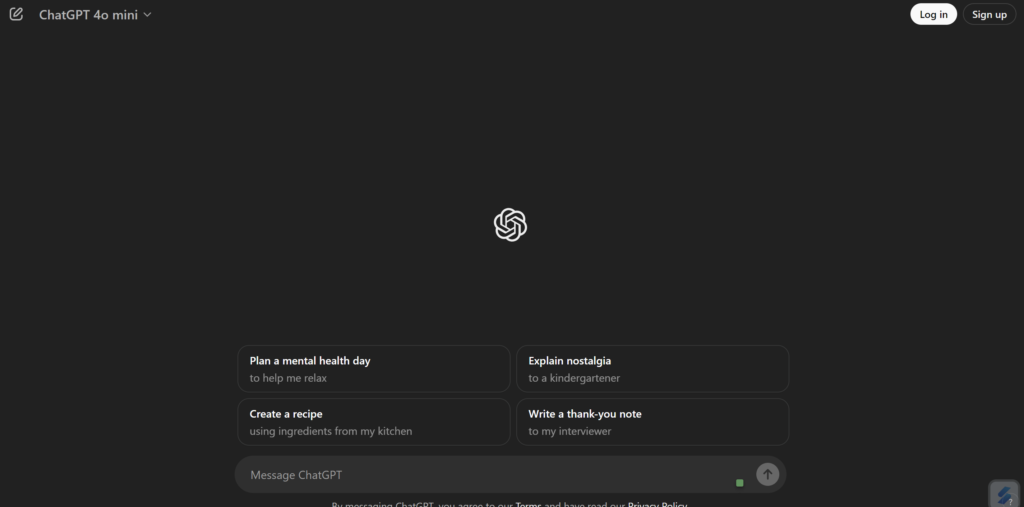
Have you ever dreamed of making money through your writing skills but felt overwhelmed trying to learn copywriting, SEO writing, or blogging on your own? With the rise of artificial intelligence (AI), generating high-quality written content is now easier than ever before.
In this post, we’ll explore how anyone can leverage AI tools to create profitable copywriting, eBooks, social media posts, and search engine optimized content. Whether you’re a complete beginner or a seasoned writer looking to scale up, AI-assisted writing can help you save time, increase productivity, and make more money with your words. Read on to learn actionable tips and avoid common pitfalls on your journey to copywriting success in the AI age.
TL;DR
- Artificial intelligence writing tools provide a way for anyone to quickly generate high-quality copy, e-books, blog posts, and social media content.
- To get the most out of AI writing, it’s important to give the AI clear direction through detailed creative briefs tailored to your target audience and goals.
- While the AI can produce good first drafts, it’s still essential to refine and customize the computer-generated text to make it sound more natural and human-written.
- Strategically use AI for research, brainstorming, and ideation to augment your own creative process, rather than fully automating the writing.
- Avoid becoming over-reliant on artificial intelligence by combining its capabilities with your own human ingenuity, expertise, and creative vision.
- The key is finding the right balance between AI efficiency and the uniqueness of human creativity.
How AI Becomes Every Writer’s Secret Weapon
In a time when cheerful bots are becoming the go-to solution for anyone tired of typing, it’s easy to see why they’re so appealing. But let’s face it—turning to automation for your writing isn’t always a smooth ride!
If you mishandle these digital assistants, your next blog could quickly spiral into chaos. So why not steer clear of their common pitfalls? Dive into these practical tips to ensure your AI tools help you breech writer’s block rather than building an unbreakable wall around your creativity.
Artificial intelligence is transforming how writers of all kinds – from copywriters to bloggers to authors – get the job done. With capabilities like automatic text generation, instant research, and optimization for readability and SEO, AI gives writers a productivity boost like never before. Suddenly, that blank page doesn’t seem so intimidating…
For copywriters, AI helps rapidly ideate angles and draft initial versions to kickstart the creative process. It takes care of the heavy lifting so writers can focus on strategic messaging and branding. Fiction authors use AI writing assistants to overcome plot holes and generate suggestions. Bloggers leverage AI research to incorporate related articles into their posts. The applications are endless.
By partnering with AI as a collaborator, writers can level up skills, demolish writer’s block, and scale up content output. Humans still provide the creative vision, nuance, and refinement that machines can’t match. Together, humans and AI make an unstoppable writing team.
So next time facing the dreaded blank page, don’t despair. The new secret weapon is waiting to help craft page-turning copy and content at speeds never thought possible!
Actionable Steps for Leveraging AI Writing Tools

For Beginners:
- Start by trying free AI writing tools like ChatGPT to get a feel for prompts and outputs.
- Take AI writing courses on Skillshare or Udemy to properly leverage AI tools.
- Use AI generators like Jasper, Rytr, or Copysmith for basic social media posts and short form copy.
- Practice refining AI outputs to sound more natural before publishing.
For Intermediate:
- Invest in higher-end AI tools like Anthropic, Copy.ai, or Jasper for more advanced copy.
- Create detailed briefs for the AI including target audience, tone, intent, and keywords.
- Combine the AI’s automatic generation abilities with your own human research and strategic planning.
- Use AI tools like ShortlyAI and INK to optimize web copy and eBooks for SEO.
For Advanced:
- Develop proprietary AI models trained on your niche’s voice, style, and keywords.
- Automate content creation workflows by chaining AI tools together with Zapier and IFTTT.
- Outsource rote content creation tasks to AI and focus your efforts on high-level strategy.
- Continuously provide feedback to the AI to improve its performance over time.
Common Mistakes to Avoid with AI Writing Tools
- Over-Relying on AI Writing Tools
– Mistake: Depending too heavily on AI tools to write full documents without human oversight
– Solution: Use AI writing tools for assistance and ideas, but have a human review and edit to ensure quality
- Not Providing Sufficient Context and Guidelines
– Mistake: Not giving the AI enough background context and clear writing guidelines
– Solution: Provide detailed prompts explaining the purpose, audience, tone, and specific instructions
- Not Reviewing Outputs for Accuracy and Ethics
– Mistake: Assuming AI outputs do not contain any factual errors, biases, or problematic content
– Solution: Carefully review all AI generated text for accuracy, fairness, and ethical issues before publishing
- Using AI Tools for Sensitive Content
– Mistake: Relying on AI to write about personal trauma, private experiences, etc.
– Solution: Be mindful of having AI write sensitive content that may require real human understanding
- Copying Full Passages Without Attribution
– Mistake: Using lengthy AI generated extracts without properly crediting the source
– Solution: Paraphrase or rewrite any passages you include and cite the AI tool used
- Lacking Supporting Evidence and Data
–Mistake: Making suggestions about AI writing tools without backing up claims with research/statistics
–Solution: Cite credible studies, reports and data that prove efficacy of recommendations.
The key is finding the right balance in leveraging the power of AI writing assistance while maintaining necessary human oversight and judgment, especially for accuracy, fairness and sensitive content.
Statistics and Research
- An AI survey by Authority Hacker has found AI is now a big player in content creation, with 85.1% of marketers using AI article writers. This high percentage highlights how quickly AI has gained traction in the industry.
- A Salesforce and YouGov 2023 survey found that, among marketers using generative AI, 76% employ it for basic content creation and writing copy. In addition to that, almost 71% turn to it for inspiration in creative thinking.
- According to the 2023 WebFX marketing survey, almost 45% of marketing professionals use AI for content creation.
Expert Opinions on AI Writing Tools
“AI-powered writing tools help unlock potential and remove constraints from the creative process. They augment the human ability to produce meaningful work.” – Anthropic CEO Dario Amodei
“I think what makes AI different from other technologies is that it’s going to bring humans and machines closer together. AI is sometimes incorrectly framed as machines replacing humans. It’s not about machines replacing humans, but machines augmenting humans. Humans and machines have different relative strengths and weaknesses, and it’s about the combination of these two that will allow human intents and business process to scale 10x, 100x, and beyond that in the coming years.”- Robin Bordoli, ex-CEO, Figure Eight
“AI excels at churning out passable first drafts, but the nuance, strategy and artistry of copywriting remains uniquely human.” – Copy.ai CEO Paul Yacoubian
Frequently Asked Questions
What’s the best AI writing tool for beginners?
For beginners, start experimenting with free conversational AI tools like ChatGPT. Take courses to properly frame prompts. Easy-to-use tools like Jasper, Shortly, and Rytr are also great entry points.
How do I make AI content sound more human?
Customize and refine raw AI outputs using your own words. Vary sentence structure, trim verbose sections, inject humor and personality, add examples, and correct inaccuracies.
Can AI write complete blog posts?
Yes, AI tools can generate complete blog post drafts when given a topic, keywords, tone, length, and SEO goals. But expect to spend time refining and fact-checking the drafts before publishing.
Is AI-generated content plagiarism?
Simply copying and pasting AI outputs is considered plagiarism. But you own the copyright on content you direct the AI to generate. Customize outputs and cite AI sources to publish ethically.
How do I use AI to create an eBook?
Use AI for research and chapter ideation. Tools like Shortly outline chapters and subheadings. Then refine AI-generated paragraphs for an initial draft. Insert your own examples, stories, and custom sections.
Can AI do copywriting?
Yes, AI excels at churning out marketing copy drafts for ads, emails, landing pages when given a product/service description and audience profile. Provide keywords and tight creative direction upfront to get good results.
How can I scale content creation with AI?
Using AI workflow tools like FunnelAI and Conversion.ai, you can template and automate content for specific clients or campaigns. This frees you to focus on high-level strategy.
Does AI help with writer’s block?
Yes, AI tools can provide effective jumping-off points to overcome writer’s block. Use AI outline and research capabilities to get started, then add your own angle.
How do I optimize web copy with AI?
Tools like INK, Shortly, and Rytr allow optimizing copy for SEO keywords and readability. Or generate new posts around target keywords. Refine the drafts into natural, engaging copy.
Can AI write social media posts?
AI can draft all types of social media posts when given your brand voice, content angle, and word count. Tweak for tone consistency across channels. Schedule using AI social media management tools.
Enhance Your Writing Skills with AI
Whether you’re looking to start a blogging business, become a freelance copywriter, write eBooks for passive income, or scale a content marketing machine for your company, AI-powered writing tools make it possible to produce more high-quality content in less time. With the right strategies, AI can help overcome writer’s block, assist research, generate initial drafts, and even promote your content.
Yet while AI accelerates the process, human creativity, strategy, and refinement are still indispensable to connect with readers in a unique way. The writers who learn to most effectively direct and collaborate with AI will go the furthest.
So if you’re eager to increase your writing output, save time, and make more money with your words, why wait? Sign up for that AI writing course, research the latest tools, and start putting artificial intelligence to work for your copywriting and content creation goals today. The future is here – it’s time to seize the opportunities.
If you’re eager to increase output, save hours, and earn more income with AI-assisted copywriting or blogging, the Rhodes Brothers have exclusive videos to maximize your success.
Be sure to check out the eye-opening video revealing the special AI prompt techniques millionaires utilize to achieve next-level outcomes. This inside look at how financial elite squeeze game-changing results from AI could profoundly upgrade how you harness its power too. Discover their top-tier secret formula for profoundly enhancing any AI application today!
For More Free Videos, Subscribe to the Rhodes Brothers YouTube Channel.
Don’t wait to boost productivity and profits – click here to subscribe and unlock your potential!
Recommended Resources
Top AI Writing Tools
Online Courses
- AI Copywriting Masterclass on Udemy
- Intro to AI Writing on Skillshare
- The Creative’s Guide to AI on Reedsy
- AI Social Media Marketing Nanodegree on Udacity
Books
- The Digital Mindset: What It Really Takes to Thrive in the Age of Data, Algorithms, and AI by Paul Leonardi and Tsedal Neeley
- The AI Content Creator’s Handbook: THE ULTIMATE GUIDE TO CREATING CONTENT WITH ARTIFICIAL INTELLIGENCE by T.J. Foster
- Microcopy: The Complete Guide by Kinneret Yifrah
Podcasts
Tools
- Grammarly – Grammer checks and refinements
- Hemingway – Readability optimization
- Buzzsumo – AI-powered content research
AI Copywriting Cheat Sheet
- Provide very detailed briefs to AI writing tools catered to your specific goals, target audience, and desired messaging.
- Always customize and refine raw AI outputs to inject your own human touch and brand voice.
- Use AI for ideation and background research to enhance your own writing process.
- Don’t fully automate – strategically combine AI capabilities with your own creative vision.
- Closely review auto-generated drafts for inaccuracies before publishing.
- Give examples of your ideal tone and messaging for the AI to mimic.
- Ensure your prompts align with your organization’s values and ethics.
- Break down lengthy copywriting projects into smaller chunks for the AI.
- Have a human editor thoroughly proofread final AI content before publishing.
- Leverage AI strengths like untiring data analysis while complementing with human creativity.
- Make sure auto-generated content reads as authentic, not robotic or awkward.
- Always rework and rewrite AI content extensively before using – don’t just copy.
- Use AI as a supportive tool, but don’t rely on it fully to understand nuances.
- Check that the AI doesn’t inadvertently plagiarize source material.
- Monitor AI use to ensure it remains compliant with platform terms of service.






